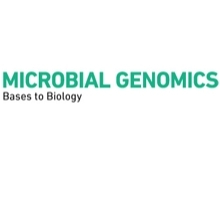The Society for General Microbiology fully launches its new journal, Microbial Genomics
16 July 2015

Today, the Society for General Microbiology is announcing the full launch of Microbial Genomics (MGen), the Society’s first fully open access journal that incorporates an open data policy.
MGen publishes peer-reviewed articles that use genomic approaches to further our understanding of microbiology. The Society is waiving all article processing charges for the journal’s first year.
MGen is the Society’s first journal to feature a double-blind peer review policy, meaning that the name, institution and submitting country of all authors is hidden from peer reviewers, and vice versa. Genomics is a relatively new field with many early-career researchers, so this policy ensures that the journal focuses on high-quality science rather than reputation.
By implementing a mandatory open data policy and partnering with the online data repository, figshare, MGen will allow all deposited data to be accessible to researchers across the globe, via the published article. Researchers can also use the Society’s figshare portal to discover data published in the journal.
The journal’s first article presents the use of genomic SELEX screening in Escherichia coli to discover a new role for a key regulator. Dr Claudine Médigue, Editor for MGen, explained: “Dr Shimada and colleagues have identified a large set of E. coli genes under the direct control of the important Leucine-responsive regulatory protein (Lrp) in addition to several novel gene targets.”
Dr Philippe Lemey, also an Editor for MGen, explains the importance of the journal’s second accepted paper: ”Pessia and colleagues have developed a powerful model-based machine learning technique (K-PAX2) that pinpoints the candidate sites and amino acids targeted by selection in large sequence alignments without prior knowledge of the sequence grouping. By showing that K-PAX2 accurately recovers known patterns of antigenic divergence in large data sets of influenza A/H3N2 hemagglutinin sequences, the authors demonstrate that K-PAX2 represents a promising tool to guide studies of protein function in microbial genomics.
“These are the type of results we need genomic methods to find, to study, and ultimately to combat. Microbial Genomics is going to be the place to read and publish such research.”
Finally, the journal will be publishing a regular feature called Standing on the Shoulders of Giants, which will highlight influential researchers and pioneering papers that have shaped the field of microbial genomics. The first article highlights the research of Professor Stanley Falkow, considered by many as the father of molecular microbial pathogenesis.
The journal’s international Editorial Board is led by Professor Nicholas Thomson and Professor Stephen Bentley, both from Wellcome Trust Sanger Institute, UK.
Professor Bentley said of the full launch: “Microbial genomics is a young field, but one that is rapidly progressing and is relevant to almost all aspects of microbiology. By publishing a variety of article types and supporting the use of open data, the new journal provides a flexible and accessible hub to present, integrate and nurture this emergent research.”
For information about the journal, visit MGen's page.


